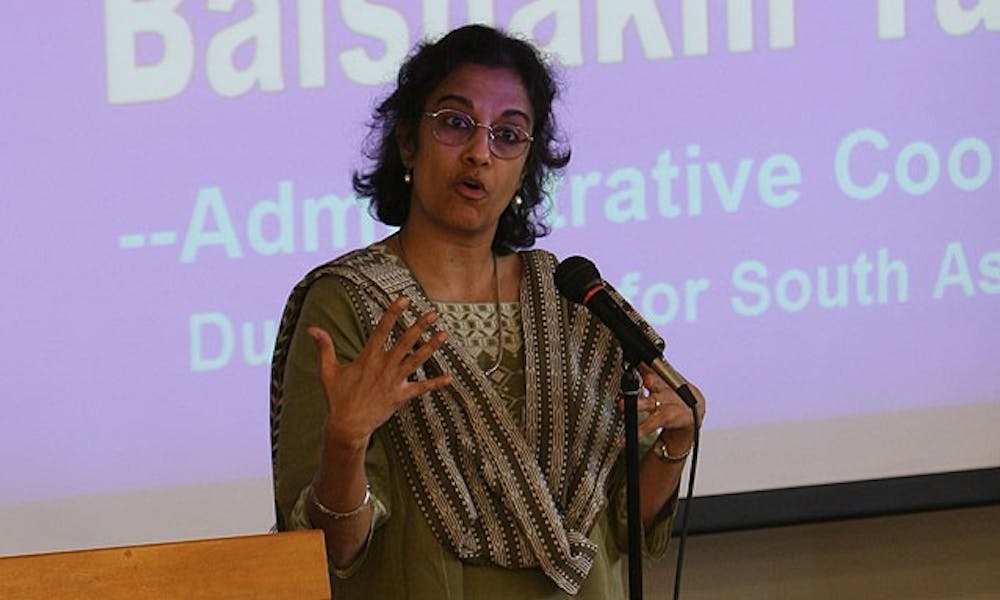The Arts and Sciences Council unanimously approved the new South Asian Studies certificate program and discussed the results of the faculty Budget Solutions Poll at its meeting Thursday.
Sponsored by the Center for South Asian Studies, the certificate program will explore important issues in emerging counties in the region, including India, Pakistan and Afghanistan. It will focus on decision-making strategies relating to topics such as social and economic development, global health and religion.
“From a global perspective, this is a very important region, and a lot of scholarship is coming out of this region,” said Sumathi Ramaswamy, director of the Center for South Asian Studies and the new South Asian Studies Certificate.
Students need to complete six courses to fulfill the proposed requirements for the certificate. The required courses currently include an introduction to South Asian studies, a language class, a research methods course, a senior research capstone and two electives.
Funding for the program has been secured for faculty and course development, Ramaswamy said. Some of the programming money will be directed toward building ties with Trinity College and Duke’s eight other schools, she added.
Additionally, the council approved a new policy that limits undergraduates to taking a maximum of six credits in graduate and professional schools. Lee Baker, dean of academic affairs of Trinity College, said he supports student interest in graduate and professional courses, as it expands the scope of their education and knowledge of campus culture. At the same time, students should still be taking the majority of their courses at the undergraduate level.
The council also presented the results of the Budget Solutions Poll, which reflected consistent support for cost-saving measures in entertainment. The proposed cuts will limit the money spent on faculty recruitment dinners and business lunches, encourage more selective choices of colloquia and reduce excessive phone line spending.
In terms of increasing revenue, the survey showed that faculty members strongly opposed the introduction of online courses as a revenue-raising measure, however, especially if they are offered as a full replacement to courses on campus.
“Duke is an exclusive, high quality, private institution and we have no intention to try to compete with web-based courses,” said Alvin Crumbliss, interim dean of the faculty of Arts and Sciences. “We use technology in courses when it is a value-added component, not when it’s a replacement to student interaction with faculty.”
Professors also supported increasing the number and strength of master’s, joint degree and “four-plus-one” programs to raise revenue. Crumbliss said that increased faculty in master’s programs should not involve relocating professors from undergraduate classes.
The survey also indicated that faculty support summer session and international programming initiatives as ways to produce revenue.
“The more [global education] programs we have, the more opportunities we have for undergraduate students and the more chance we have to increase revenue stream, but we need to keep in mind that revenue stream needs to be supported by significant infrastructure,” Crumbliss said.
The council also discussed global education in terms of the new Duke Center for Civic Engagement. Although several students are currently involved with service, community engagement should be more thoroughly integrated into the curriculum, said Leela Prasad, faculty director for the DCCE and associate professor of ethics and Indian religions.
“[The center] seeks to create, sustain and exemplify an ethos of civic engagement at Duke by connecting University education to public service,” she said.
Get The Chronicle straight to your inbox
Signup for our weekly newsletter. Cancel at any time.

